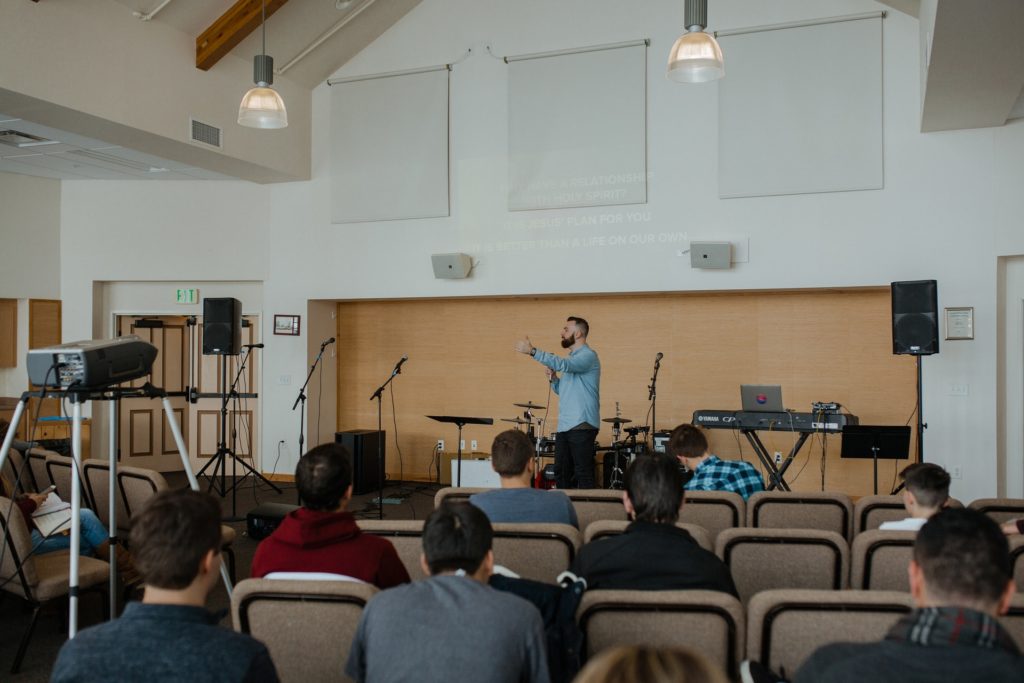What’s your number? Every pastor has one.
It’s the barometer of satisfaction, the determiner of success, the final metric of our worthiness as church leaders. Every pastor knows his number, so what’s yours?
I’m not talking about your bank account, your salary, or the lottery. I’m talking about how many people need to show up at your worship service or primary gathering for you to feel that your church’s mission is moving forward, that your programs are working, that your preaching is attracting a big enough crowd. How much money needs to drop in the offering plates to convince you that your ministry is experiencing God’s favor? What’s your number?
It doesn’t matter if a church is large, medium, or small; all pastors have a number. Maybe it’s the wrong one. Could churches be measuring the wrong thing?
God’s Numbers
God has two numbers. (He can do that because He’s in charge.) God’s first number is one: one man, one woman, one mission. One nation, one tribe, one Savior. One coin, one sheep, one prodigal.
God cares about every one. Every one matters. He counts the hair of each one. He hears the prayers of each one. He longs for each one to come to repentance. Jesus died for each one, but He also died for the multitude. That is God’s other “number.” Just like the one, the multitudes matter to God.
His first command in the Garden was, “Be fruitful and multiply; fill the earth.” After the Flood, He reiterated that same command to Noah and his children. But instead of filling the earth for God’s glory, people built a tower to make themselves famous.
Later God called Abram and promised that his seed would multiply. His descendants would become a multitude so great they would outnumber the stars in the heavens. Even that wasn’t enough. God’s promise was global; He planned to use Abraham’s seed to reach all the nations of the earth.
Jesus’ Numbers
Jesus is the ultimate fulfillment of that promise. Just like His Father, He focused on two numbers. Over and over, He invested time in the one: a leper, a tax collector, a demoniac. A sinful Samaritan at Jacob’s well. A religious leader confused about salvation. An insignificant man with a withered hand. Each one mattered to Him. They knew He cared. He was never too busy to engage them in conversation. But He didn’t stop there.
Jesus engaged the multitudes. He healed them, fed them, and taught them. Even when He was tired, He had compassion on them and met their needs. But Jesus came to gather more than a crowd; He came to ignite a mission rooted in multiplication within the context of individual relationships.
The Disciples’ Numbers
The disciples followed Jesus’ lead. Just like Jesus, they focused on individuals. And just like Jesus, they multiplied their impact by making disciples who made disciples who made disciples. They knew the importance of a single soul, and they knew the only way to reach all of them was to multiply their influence in the same way Jesus had.
The book of Acts records their approach. Over and over the Word of God was multiplied, thousands of sinners became followers of Jesus, leaders were equipped, and churches were formed. The focus was on more than holy huddles, comfort, and personal preference. The disciples knew their mission. It was all about going and reaching and making disciples of all nations. According to Luke’s tallies, thousands were converted.
It’s time to get back to what the original disciples did. We need to multiply disciples, leaders, and churches. There is no other way to make a dent in the ever-increasing lostness of our world.
Our Numbers
It’s time to look outward, to measure our effectiveness by the number of people living outside our congregations and still separated from the grace of God. It’s time we show more passion for the lost than we have for our own preferences and traditions. We must move beyond counting the number of people who simply show up on Sunday and start tracking the number who are engaged in making disciples. Instead of measuring effectiveness by the number of people who gather, we need to track the number who live like they are sent.
Different Questions
It’s time we started asking different questions: Are we identifying people in our circle of influence who need to hear and respond to the gospel? Are we praying daily for at least one of them? Are we inviting one into our home at least once a month? Are we listening to their stories? Are we sharing our own story of conversion with them? Did we reach even one with the gospel this past year?
We start with one and we multiply. We make disciples who make disciples. We go beyond programs that focus on a transfer of information and start investing in redemptive relationships.
Different Metrics
Let’s invest a few minutes in counting by using different metrics.
What percentage of your people are actively engaged with lost people? Are you?
How is outreach happening in your church? Does it rely on a program that requires non-Christians to come to you—to meet you on your turf on your terms? What if you stopped the programs and started focusing on relationships? What if the key metric was not how many people showed up at your church but how many church people invited a lost person into their homes?
How many adults have trusted in Jesus and been baptized into your church recently? How many of them have been discipled in such a way that they are now discipling others?
And when it comes to making disciples, are you focused on transmitting information or facilitating transformation? Is your disciple making rooted in a curriculum or reliant on the personal interaction of Christ followers who know how to develop other Christ followers who can do the same? This is the foundation for multiplication throughout the history of the church.
How many leaders have you developed in the past five years? How many of them have been equipped to develop more leaders? How many have been sent out or released to multiply your church’s ministry in another corner of your community, state, nation, or the world?
How much time have you invested in developing a strategy to start more groups or plant more churches?
How many people must gather at your thing before you are willing to send them out to do God’s thing?
Are you so addicted to addition that you are unwilling to multiply?
A Way Forward
The only way to turn the corner and reverse the current trend is for more and more churches to get on a path to reproduction focused on multiplying disciples, leaders, and churches. That’s why the GARBC is working through Generate to sponsor regional Church Solutions Conferences in conjunction with ABWE EveryEthne. These conferences are designed for church leaders who want to focus on the numbers that matter to God—that one person He sovereignly placed in our lives and the multitude of lost people who live all around our churches.
Here is the great irony of pursuing addition rather than multiplication: churches that focus on giving themselves away increase their numbers at a far greater rate than those who don’t. There are many reasons for this, but here’s the most important one: God blesses those who invest and multiply what they have been given (Matt. 25:14–30). The parable of the talents makes it abundantly clear that our Master has little patience with those who bury their treasure. What we have been given must be deployed. From our perspective, deployment often looks like a risk. From God’s perspective, it’s a matter of faith, obedience, and stewardship. There is a reason many of our churches are stagnate or in decline: we refuse to honor the mission of God, so He refuses to honor us. It’s time to change the equation. It’s time to repent.
Editor’s Note: This article was originally published in the Baptist Bulletin, copyright 2022 Regular Baptist Press. All rights reserved. Used by permission.





